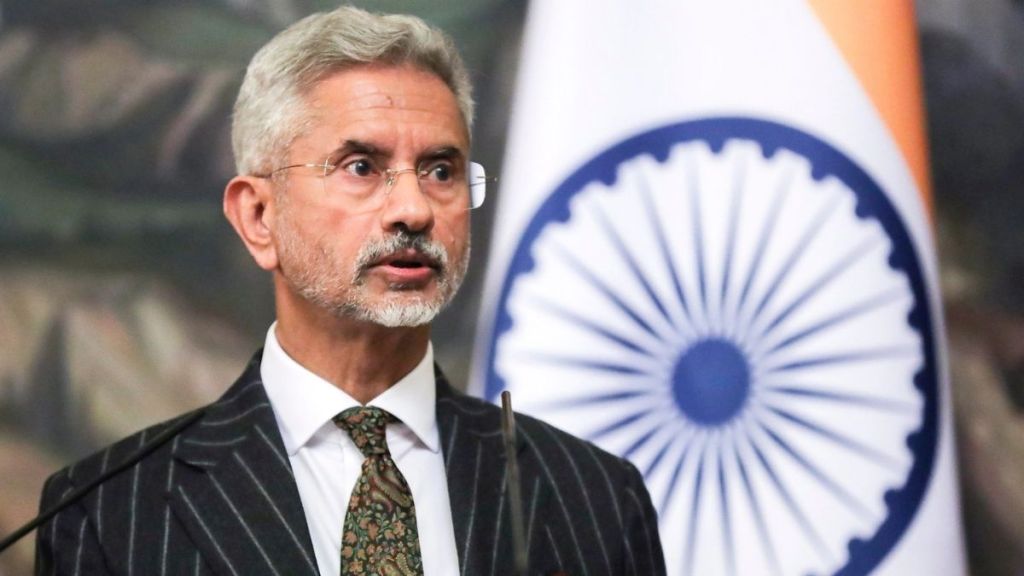Amidst the ongoing conflict between Israel and Iran, on Sunday, External Affairs Minister S Jaishankar engaged in crucial conversations with his Iranian and Israeli counterparts, highlighting India’s diplomatic efforts amidst escalating tensions in West Asia. These discussions, occurring in the aftermath of Iran’s unprecedented attack on Israel, underscored the complexities of the region and India’s proactive stance in promoting peace and stability.
In his telephonic conversation with Iran’s Foreign Minister Hossein Amir-Abdollahian, Jaishankar addressed the pressing issue of the release of 17 Indian crew members detained by the Iranian military following the seizure of a cargo ship. Furthermore, he emphasized the importance of de-escalation, restraint, and a return to diplomacy to mitigate the growing tensions in the region.
Jaishankar said on X “Spoke to Iranian FM. Took up the release of 17 Indian crew members of MSC Aries. Discussed the current situation in the region. Stressed the importance of avoiding escalation, exercising restraint and returning to diplomacy. Agreed to remain in touch.” Jaishankar said on X.
During the conversation, the Iranian minister told Jaishankar that it will allow the meeting of Indian government representatives and Indian crew of MSC Aries.
According to an official readout issued by the Iranian government, Dr Abdollahian, informed his Indian counterpart about Iran’s legitimate defence and the punishment of the Israeli regime. And he called for India’s continued role through international institutions, including the UN Security Council, to stop the war in Gaza, which is the root cause of the current crisis in the region. And to also end the aggressions and crimes of the Zionist regime.
Similarly, in his dialogue with Israel’s Foreign Minister Israel Katz, he expressed concern over the recent developments and engaged in discussions regarding the broader regional situation. These diplomatic exchanges highlight India’s commitment to fostering dialogue and finding peaceful resolutions amidst volatile circumstances.
The recent attack launched by Iran, involving over 300 drones and missiles targeting Israel, marks a significant escalation in the longstanding conflict between the two regional adversaries. Despite the intensity of the assault, according to various reports in the public domain, Israel’s robust defence capabilities, notably its Iron Dome air defence system, intercepted the majority of the incoming threats, underscoring the effectiveness of its defence infrastructure.
Israel’s Iron Dome, operational since 2011, has been instrumental in protecting Israeli cities from rocket attacks originating from Gaza and Lebanon. Designed to intercept short-range rockets within a range of up to 70 kilometers, the Iron Dome represents a critical component of Israel’s multi-tiered missile defence strategy.
Moreover, Israel’s defence arsenal includes additional systems such as the Arrow, tailored to counter ballistic missiles, and David’s Sling, aimed at thwarting medium-range rocket attacks. These defence mechanisms exemplify Israel’s commitment to safeguarding its territory and population from external threats.
Amidst escalating tensions and the specter of conflict looming over West Asia, India’s diplomatic interventions serve as a beacon of hope for de-escalation and dialogue. Minister Jaishankar’s proactive engagement with regional stakeholders underscores India’s role as a responsible global actor committed to peace, stability, and diplomatic resolution in the tumultuous landscape of West Asia.


